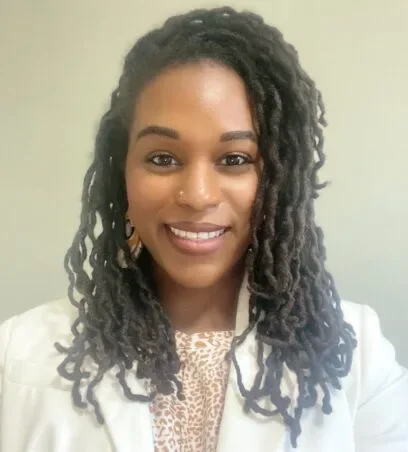Kimberly T. Arnold, PhD, MPH, RYT
Assistant Professor, Family Medicine and Community Health, Perelman School of Medicine

Courses Taught
Co-Director of Advancing Health Equity
Contact
Brief Bio
Kimberly T. Arnold, PhD, MPH is a health equity activist-scholar who addresses health disparities disproportionately experienced by Black people through a combination of grassroots and evidence-based interventions in community settings, holistic health services, and policy solutions. She also engages in multi-sector collaboration to address inequities in social determinants of health in the areas of housing, education, food security, and access to high quality mental health services. Dr. Arnold has expertise in health equity, community engaged research approaches (e.g., community-based participatory research), implementation science, and qualitative and mixed methods research.
Overall, she conducts research—in partnership with community members, practitioners, and policymakers—that is focused on increasing the adoption, implementation, and sustainability of evidence-based health and mental health interventions in predominantly Black community settings, especially schools and churches. Her long-term goals are to collaborate with other scholars, activists, researchers, practitioners, policymakers, and community members to achieve health equity for Black people and bridge the gaps between research, policy, and practice.
Dr. Arnold serves as the Board of Directors President of the Pleasant Hope Community Development Corporation that she co-founded in 2019, and as a Board of Directors member of the Black Church Food Security Network. Dr. Arnold earned an MPH from the Drexel University Dornsife School of Public Health and Human Rights in 2014, a PhD in Health Policy and Management, and a certificate in Community-Based Public Health from the Johns Hopkins Bloomberg School of Public Health in 2019.
Publications
- The Intergenerational Impact of Structural Racism and Cumulative Trauma on Depression
- Factors that Influenced Adoption of a School-Based Trauma-Informed Universal Mental Health Intervention
- Multilevel Barriers and Facilitators to Sustainability of a Universal Trauma-Informed School-Based Mental Health Intervention Following an Efficacy Trial: A Qualitative Study